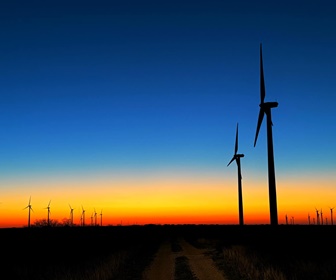 Is the EU’s investigation into Chinese wind turbine manufacturers justified?
Is the EU’s investigation into Chinese wind turbine manufacturers justified?The European Commission has initiated an investigation into Chinese wind turbine manufacturers under the new Foreign Subsidies Regulation. This move follows concerns over the impact of Chinese suppliers offering cheap turbines and generous financing and the subsequent effect of this on the integrity of the European market and fair competition. The recent investigations into Chinese wind turbine manufacturers focus on unfair trade practices in Spain, Greece, France, Romania and Bulgaria.
Under the foreign subsidy rules, companies taking part in public tenders in the European Union (EU) above a certain value must report any financial contributions received from a third country above a certain threshold. If the Commission finds evidence that foreign money is tilting the playing field in a deal or procurement, it can open an investigation.
Chinese wind turbine manufacturers have been able to offer significantly lower prices compared with their European counterparts, with some turbines priced up to 50% lower. Additionally, they provide financing terms that include deferred payments for up to three years, effectively allowing wind farm operators to use the turbines for free until they generate revenue.
Cheap imports can enable the import market to scale up innovations in technology and lower the cost of adopting them, but once the exporters start to compete, unfairly cheap imports will take over the market share of European companies, companies that provide jobs, taxes and local know-how.
Import regulations can help level the playing field by preventing unfair practices, such as dumping, in which Chinese manufacturers flood the market with low-priced turbines. This protects Western manufacturers and encourages healthy competition based on quality and innovation rather than just price. In this case, European policymakers are keen to avoid a repeat of what happened with solar panels a decade ago, when the EU took no action to curb Chinese imports and many European manufacturers collapsed.
On the other hand, imposing import regulations on Chinese wind turbines could escalate trade tensions between Western countries and China. The wind energy supply chain is highly globalised, and retaliatory measures from China will impact the global supply chain and other sectors of the economy, potentially disrupting global trade relationships. Also, trade restrictions could have a negative effect on developing economies and low-income countries, slowing the energy transition in those parts of the world.
The Global Wind Energy Council recently carried out an analysis of the global wind supply chain in its recent report with Boston Consulting Group, showing that global scenarios involving heightened protectionism, restrictive trade regimes, and distorted forms of competition will likely result in slower wind market growth, higher wind energy costs and lower financial sustainability for wind suppliers.
In conclusion, unnecessary trade frictions could hinder wind market growth, increase energy costs and compromise financial sustainability for suppliers. However, we do not want a repeat of what happened with the solar industry, so governments should not look away but rather investigate whether unfair play is occurring and protect the domestic industry if it is.
Enjoy Reading,
Floris Siteur
Publisher
Publisher









